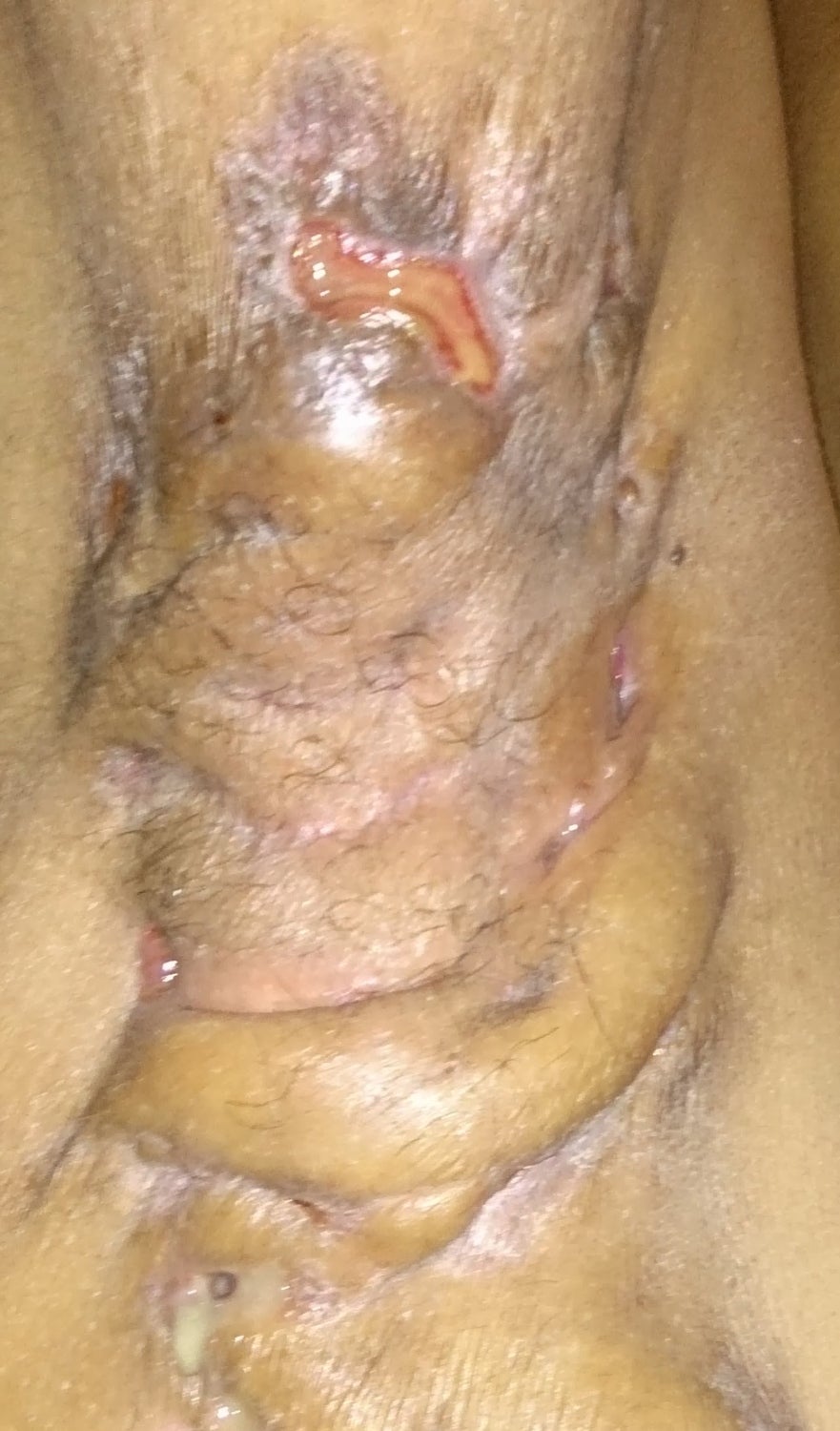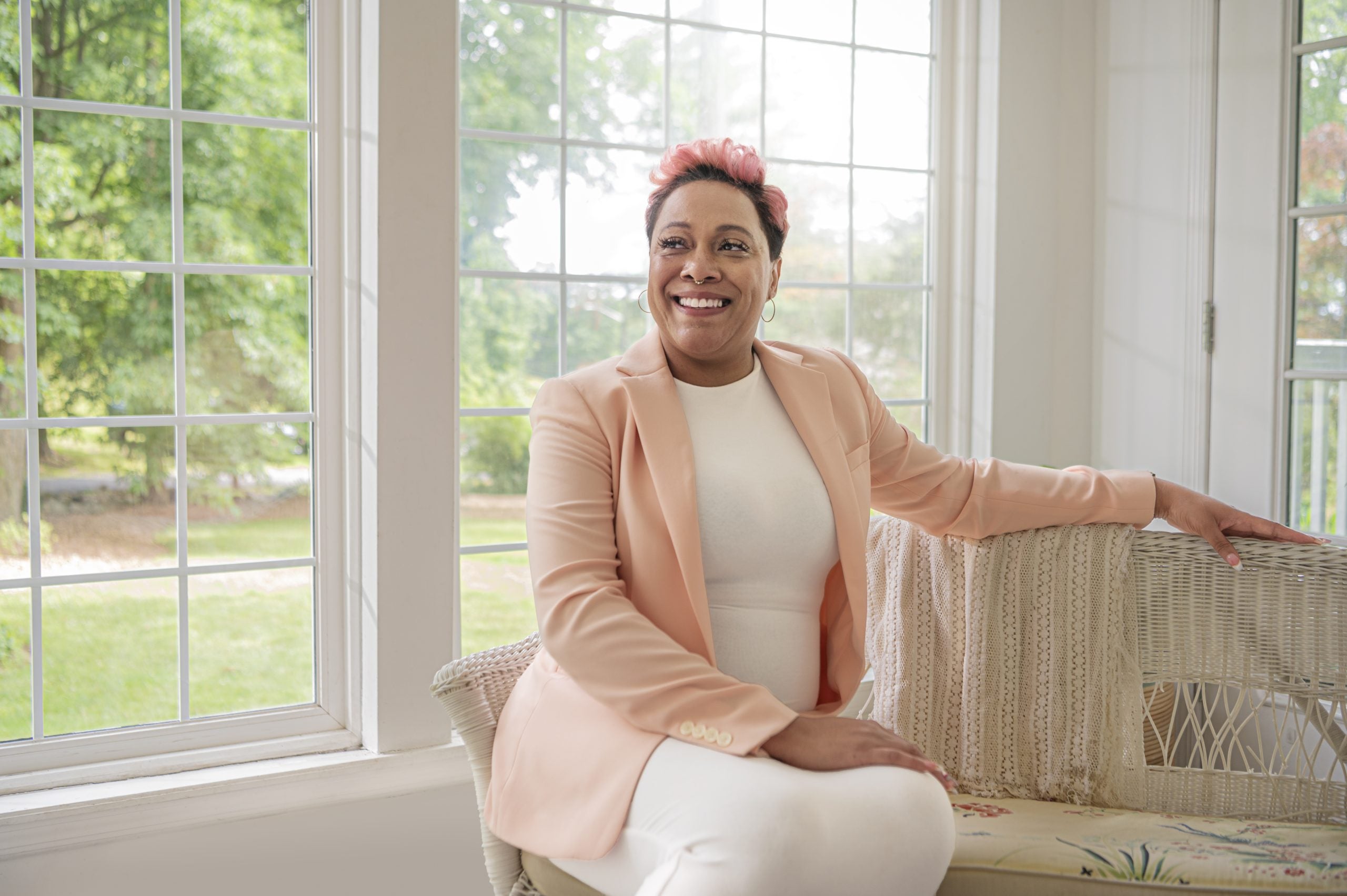
At the age of 13, Leia Ali started to see bumps under her arms. What she assumed to be acne or ingrown hairs, she treated them with warm compresses until they would decrease in size. That became a regular practice for Ali. But when a bump returned near her right breast that was extremely painful, Ali, then 18, decided to make an appointment at the clinic on her college campus to get things checked out. That was when her life was turned upside down.
“It was such a terrible experience,” she recalls. “The doctor did some poking and prodding, and everyone left the room. Then the doctor says, ‘Well, It looks like herpes. So I’m going to have you talk to one of our other nurses.’ My eyes just got big. Herpes?!”
She took a blood test, and the results for a possible STD came back negative. So, it was time to get a second opinion.
Within weeks, another physician finally pinpointed what was happening to Ali’s skin. She was diagnosed with hidradenitis suppurativa. According to experts, HS, or acne inversa, is an inflammatory skin condition that causes painful boil-like bumps under the skin. It is estimated that approximately 3.3 million people in the United States are living with HS. But women and African Americans are more likely when compared to other demographics, to have the condition.
While Ali was grateful to have a proper diagnosis for her skin condition, it opened the door to more questions about how to live a quality life. HS impacted Ali both personally and professionally. So, she had to find alternative career paths and readjust what intimacy looked like in her relationships. The lumps, which drain pus, the cysts and substantial scarring, all part of this condition that is an ongoing one, can often be severe.
[GRAPHIC IMAGE WARNING]

“I have lost more jobs than I can count because of HS. Nobody would understand it if I said I needed to be off because I was having a flare-up or because I had a boil or a cluster of them in an obscene place,” Ali says. “I may or may not have to go to the emergency room to have them drain it, or it may drain on its own. Since I was a nursing student, I had to change majors and leave school because I couldn’t stay well. Nursing is stressful. I met my mentor, whom I’ve known for 20 years, who helped me think about a career in HR. I ended up getting a degree in human resource management from Lindenwood University. And in doing that, I got to be in jobs where I learned what FMLA covered, what short-term disability covered, and used the benefits that I needed in order to continue seeing my doctor.”
She continued, “With the intimacy factor, I think that’s a piece that is missing from the whole HS conversation. You see flare-ups under your arms, your breasts, and around your groin. So we have to talk about intimacy. There’s a lot of embarrassment and shame that stops us from having the conversations. So, I want the discussions to be open for women who look like me. I want people and women who look like me to know that there’s help. You don’t have to suffer in silence or be ashamed, and you didn’t cause this.”
Now 45, and finding success professionally as the Global Learning & Development Technology Specialist at RELEX Solutions, the HS advocate hopes to bring awareness about the condition and show others that they are not alone. To do that, Ali has joined the educational campaign Make HStory, sponsored by global pharmaceutical company UCB, to shed light on her experiences and assist in dismantling the stigma behind it. With Make HStory, others can learn more about the condition, find resources for dealing with it, and support different advocacy groups.

“So the Make History campaign is geared towards women and men. It’s a platform where we tell our stories so that other people see us, hear our voices, our tears, and everything to understand what living with the condition is like,” Ali explains. “There could be people you are close to or in your network dealing with this. But they would never say anything or feel comfortable having this conversation with you. It could be your kids, your spouse, whoever.”
While there is no cure for HS, once Ali became more knowledgeable about it, she made it a goal to no longer allow her condition to stop her from living an abundant life. She has managed to gain a great relationship with her practitioner, incorporate stress-reducing practices into her daily routine that help with symptoms, and reclaim confidence within her body.
“To gain your confidence back, you have to regularly look at yourself in the mirror, all the way naked, and praise yourself. Because it starts with you first,” Ali says. “After therapy, meditation, natural supplements, and having heart-to-heart conversations with my community, I was no longer afraid of having HS. I became unapologetic about it. The past seven years have been kind of like a rebirth for me. And it’s been an amazing, amazing space.”







